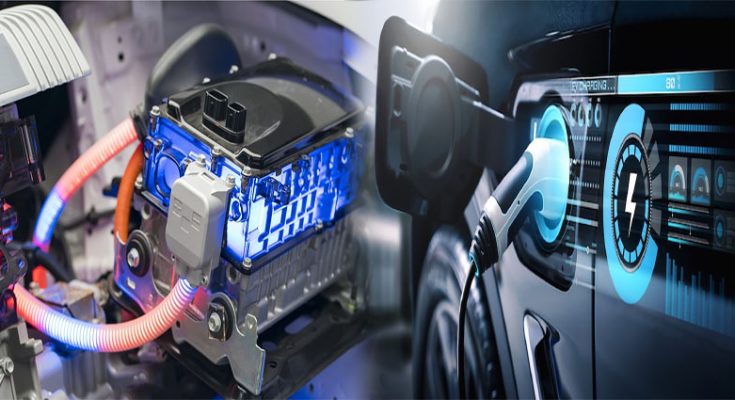Battery technology plays a pivotal role in shaping the performance, range, and overall viability of electric vehicles (EVs) as sustainable transportation options. As the automotive industry continues to innovate and evolve, advancements in battery technology have emerged as a key enabler in accelerating the adoption of electric mobility. By exploring the transformative impact of battery technology improvements in electric vehicles, we can gain insights into the crucial role these advancements play in enhancing the functionality and appeal of EVs.
1. Extended Range and Improved Performance
One of the primary benefits of advancements in battery technology for electric vehicles is the ability to achieve extended range and improved performance. High-energy-density lithium-ion batteries and other advanced battery chemistries enable electric vehicles to travel longer distances on a single charge, addressing the range anxiety concerns of drivers and enhancing the practicality of EVs for daily use. By increasing the energy storage capacity of batteries, drivers can enjoy greater range flexibility and enhanced performance capabilities in their electric vehicles.
2. Faster Charging Speeds and Enhanced Convenience
Battery technology advancements have led to the development of faster charging solutions for electric vehicles, reducing the time required to recharge the battery and improving the overall convenience of EV ownership. High-power charging infrastructure, coupled with improved battery management systems, allows EV owners to replenish their vehicle’s battery quickly and efficiently, making long-distance travel more feasible and minimizing downtime spent at charging stations. Faster charging speeds contribute to the mainstream adoption of electric vehicles by offering a seamless and convenient charging experience for drivers.
3. Enhanced Safety and Durability
Innovations in battery technology have also focused on enhancing the safety and durability of electric vehicle batteries to ensure reliable performance and long-term use. Advanced battery management systems incorporate features such as thermal management, cell balancing, and state-of-health monitoring to prevent overheating, optimize performance, and prolong the lifespan of the battery pack. Safety advancements, such as improved cell designs and protective enclosures, help mitigate the risk of battery-related incidents and enhance the overall reliability of electric vehicles.
4. Sustainable Materials and Recycling Initiatives
The evolution of battery technology in electric vehicles is accompanied by a shift towards sustainability and environmental responsibility through the use of recyclable materials and recycling initiatives. Manufacturers are increasingly exploring sustainable battery chemistries, such as lithium iron phosphate (LFP) and nickel-manganese-cobalt (NMC) formulations, that minimize the environmental impact of battery production and disposal. Recycling programs for end-of-life batteries enable the recovery of valuable materials and promote a closed-loop approach to battery utilization, contributing to the circular economy and reducing resource consumption.
5. Integration with Renewable Energy Sources
Advancements in battery technology are driving the integration of electric vehicles with renewable energy sources and smart grid technologies to enhance energy efficiency and promote sustainable mobility solutions. Vehicle-to-grid (V2G) systems enable bi-directional energy flow between electric vehicles and the grid, allowing EVs to serve as energy storage devices and support grid stability with stored electricity. This synergy between battery technology, electric vehicles, and renewable energy sources paves the way for a more resilient and sustainable energy ecosystem that benefits both consumers and the environment.
The role of battery technology advancements in electric vehicles is fundamental to the ongoing transformation of the automotive industry towards sustainable and environmentally conscious mobility solutions. By leveraging innovations in battery chemistry, energy storage, charging infrastructure, and recycling practices, the development of electric vehicle batteries continues to drive progress in performance, efficiency, and sustainability. As electric vehicles become increasingly prominent in the transportation landscape, the evolution of battery technology will play a crucial role in shaping the future of clean and efficient mobility, offering a path towards a greener and more sustainable transportation paradigm.





